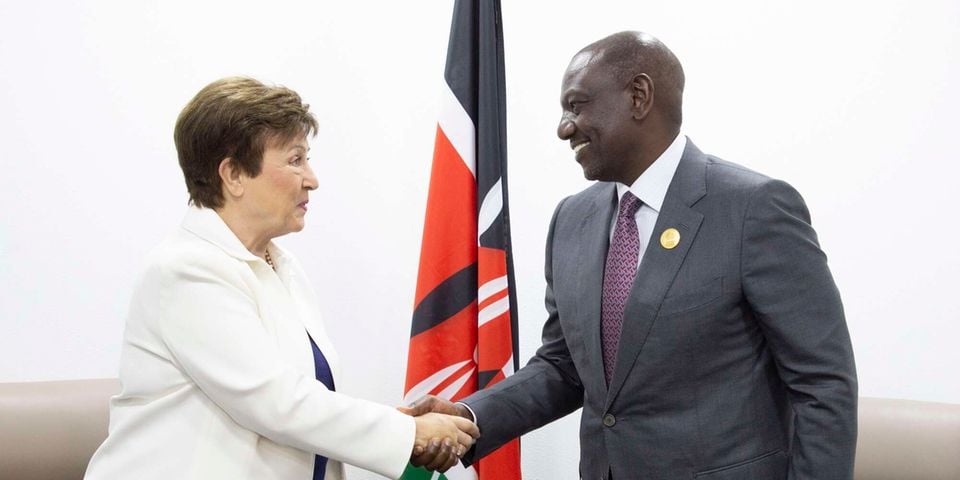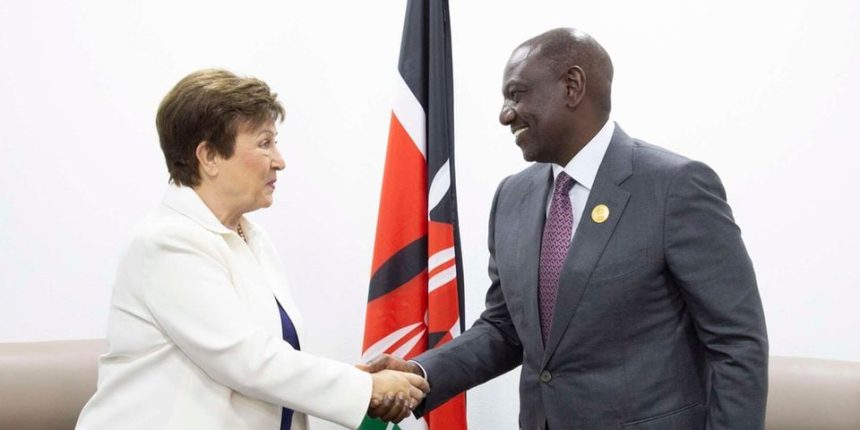Naming the beneficial owners of companies doing business with the government is off to a slow start, making it one of the remaining pain points for Kenya’s commitment to the International Monetary Fund (IMF).
The IMF has raised concerns that State agencies are not doing enough to reveal the owners of companies that supply them, undermining efforts aimed at curbing corruption and conflict of interest.
In its latest report, the IMF decried the minimum disclosure on the details of owners of companies that do business with State agencies, bringing into question the effectiveness of the 48-month agreement the country has with the Washington-based financier.
The arrangement—in which Kenya commits to reduce debt vulnerabilities by fighting corruption, wastage and increasing revenue—will see the government receive a total of $3.52 billion (Sh499.84 billion) by April 2025.
“Continued low level of reporting of beneficial ownership information by companies is hampering effective implementation of the beneficial ownership framework,” said the IMF in its latest report.
The publishing of the public procurement information was part of the structural benchmarks in the ongoing Extended Fund Facility and Extended Credit Facility arrangements.
Kenya was initially supposed to start publishing beneficial ownership information, or details related to the identity of individuals with a stake of more than 25 percent by the end of June 2021.
However, this was delayed with the government explaining that it did not yet have the right legal framework to reveal such data.
The remarks by the IMF bring into question the effectiveness of reform measures that often cannot be quantified but which are used to assess programme implementation.
Whereas Kenya said it had started publishing the information, the IMF seems hamstrung in ensuring that reform is actually being implemented.
This comes at a time the Kenya Kwanza administration has been rocked by various procurement scandals in which unknown individuals are alleged to have surreptitiously benefited from tenders in which the cost of projects was inflated.
As part of a credit arrangement with the IMF, Kenya stated that it had started publishing the beneficial ownership information of companies awarded tenders on the government procurement portal in November 2022.
However, a quick scan reveals that the information on the portal is either non-existent or incomplete.
“The authorities are taking additional measures to ensure public procuring entities continue to comply with the publication requirements, including by conducting capacity building activities,” added the IMF.
Similarly, Section 93A of the Companies Act 2015 requires firms to disclose to the State the identity of secret shareholders, including names, phone numbers and residential addresses.

The IMF reckons that this requirement will also help the government’s efforts to unmask illicit wealth.
“To further strengthen the country’s beneficial ownership framework, Kenya Business Registration Services has developed the centralized electronic register for beneficial ownership information in October 2020, which provides for timely access to the information by competent authorities,” said the IMF.
Records shake-up
The law requires new firms to fill the Beneficial Ownership Information E-Register at the companies registry ahead of registration and existing firms to comply within the set timelines in a major shakeup of shareholder records.
The details required for filing include names of the substantial shareholders, KRA pin, national ID or passport copies, postal address, residential address, occupation, telephone number and the date when an investor became a beneficial owner.
Under the deal, every company contracted by a State agency was expected to reveal its beneficial owners on the procurement portal or be locked out of the tender.



